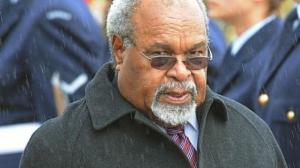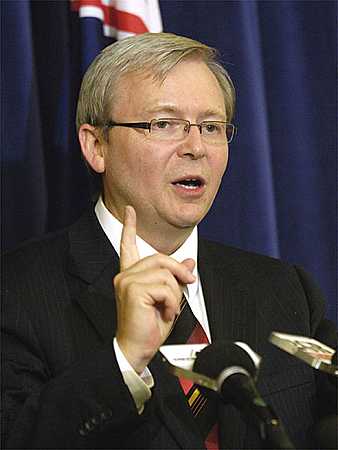The Universal Declaration of Human Rights states that “Everyone has the right to freedom of opinion and expression; this right includes freedom to hold opinions without inveive, and impart information and ideas through many media regardless of frontiers”
It applies not just to a single person’s right to publish ideas, but also to the right of print and broadcast media to express political views and to cover and publish news. A free press is, therefore, one of the foundations of a democratic society, and as Walter Lippmann, the 20th-century American columnist, wrote, “A free press is not a privilege, but an organic necessity in a great society.” Papua New Guinea as a signatory to the UN charter has an obligation to uphold the basic right to freedom of expression of an individual.
And this right goes hand-in-hand with the freedom of the press, that one could publish their ideas, thoughts or knowledge on any forms of media. So how does one balance “freedom of the press” with “independence of Inquiry” most especially when you dealing with sensitive issues? The Moti Inquiry has tested a lot of laws in Papua New Guinea including the Human Rights declaration especially the one relating to the “freedom of the press”.
I’ve read with keen interest the infamous moti report and I have found it to be bias in more than one ways. Most especially, the counsel in charge already is making predictions while the report was not finalized yet. Its interesting, but this kind of public statements has a lot of bearing on the final outcome of the inquiry. It just tells everyone, that they should not proceed with the inquiry because they already have found their culprit.
So what happens now to “You innocent unless proven guilty?” Well, certainly, it this case, Somare was already guilty while the Inquiry is trying to prove him guilty. That’s according to how things were conducted. It seems Somare was prejudged already. Amazing!!
Now, this pre-judgment has backed fired and the courts is taking a step to protect the inquiry by banning all reports of the moti case. I believe, the good counsel heading the Moti Inquiry should have kept his mouth shut before the Inquiry completes its findings. In addition, he should also be banned from reading any materials from the press untill the Inquiry completes its job. Maybe next time, we can isolate all Inquiry staff from the outside world untill the Inquiry is complete.
http://www.postcourier.com.pg/20071106/tuhome.htm
Kapi to name judges to hear contempt case
CHIEF Justice Sir Mari Kapi is following up on a public warning against discussion of the Moti board of inquiry case.
Sir Mari, who heads the National and Supreme Court system, is setting up a Supreme Court bench to take up the issue of contempt of court in the Moti matter.
This was announced in a statement from the Chief Justice published today.
On Friday, the court registrar, Ian Augerea, issued a public notice in the daily newspapers on behalf of the Chief Justice and all judges, declaring public discussion of the Moti inquiry legalities to be subjudice.
This is a legal concept where publication of matter has a real risk of interfering with the administration of justice in proceedings that are pending.
The registrar’s notice last week said “the latest public comments and media releases may amount to contempt of court’’ and said public discussions on the Moti case were to cease immediately.
In today’s notice, Mr Augerea says the Minister for Defence has acted in defiance of the warning, issuing a “detailed statement’’ in the Sunday Chronicle newspaper issue of last Saturday. The statement, he says, is on issues that may be the subject of appeal pending before the Supreme Court.
“The Chief Justice is empanelling a Supreme Court bench to immediately take up the issue of contempt of court which appears to be continuing,’’ Mr Augerea says in the notice.
Last week, the registrar said the Moti inquiry report had become the subject of review by the National Court. Justice Bernard Sakora had dismissed the judicial review on September 12.
Grand Chief Sir Michael Somare, the Prime Minister, had filed an appeal against the decision on October 19, Mr Augerea said.
Military officers Alois Tom Ur and Vagi Oala had also filed an appeal and both appeals were pending hearing by the court.
The matter was now subjudice, the registrar said then, and all issues were under “judicial consideration’’.
Therefore comments by the public were prohibited, he said.
“Continuation of publication or discussion may be regarded as seeking to influence the Supreme Court,’’ the notice said.
http://www.postcourier.com.pg/20071105/business.htm
Courts bar Moti debate
THE judiciary has taken the rare and possibly unprecedented step of warning that all public discussions of appeals before the courts on the Julian Moti inquiry have to stop.
Speaking on behalf of Chief Justice Sir Mari Kapi and “all judges’’, court registrar Ian Augerea said in a public notice that the Defence Force inquiry report on Moti was now “subjudice’’.
“All issues are under judicial consideration and therefore comments by public are prohibited,’’ he said in the notice which was published in the Post-Courier on Friday.
However judges are known to have expressed opinions on the Moti case in discussions with reporters.
The judges, acting separately, spoke to reporters and expressed their views on the condition that their names not be divulged.
Because of the registrar’s warning, the Post-Courier will not at this stage publish the nature of the judges’ views.
In a notice published on Friday, registrar Augerea issued the remarks speaking on behalf of the Chief Justice and all judges regarding media statements by Defence Minister Bob Dadae.
Mr Augerea said the Defence Force inquiry report on Moti had become the subject of a review by the National Court and Judge Bernard Sakora had dismissed the judicial review on September 12.
The Prime Minister, Grand Chief Sir Michael Somare, had filed an appeal against the decision with a notice of motion on October 19.
Captain Alois Tom Ur and Colonel Vagi Oala also filed an appeal against the decision on October 22.
Mr Augerea said the appeals had not been set down for hearing.
The appeals are challenging orders made in the National Court by Judge Bernard Sakora on September 12 dismissing an application which was seeking to declare void the establishment of the Defence Force board of inquiry which subsequently furnished a controversial report into the Moti Affair.
The registrar’s notice states: “The matter is now subjudice and all issues are under judicial consideration and therefore comments by public are prohibited.
“Continuation of publication or discussion may be regarded as seeking to influence the Supreme Court.
“The latest public comments and media releases may amount to contempt of court.
“Any further public discussions on the Moti case is to cease immediately,’’ he said.
The Moti affair, as it has come to be known, became controversial when Indian-born Australian citizen Julian Moti was arrested when he arrived in Port Moresby last year.
Moti was transiting PNG on his way to the Solomon Islands.
Australian Federal Police worked with PNG police to arrest Mr Moti.
He was whisked out of the country on a Defence Force aircraft during the night and landed at a Solomons airstrip.
He was later appointed as the Solomons Attorney-General despite vigorous opposition from Australia, which has claimed Mr Moti is wanted for prosecution in a case involving alleged sexual offences against a Vanuatu child.







![IMG_1541[1] IMG_1541[1]](https://live.staticflickr.com/3068/2331533849_fbc1c25c18_s.jpg)
![IMG_1548[2] IMG_1548[2]](https://live.staticflickr.com/2225/2331533859_1c50b7c160_s.jpg)
![IMG_1545[1] IMG_1545[1]](https://live.staticflickr.com/3210/2331533851_f453e1aa7d_s.jpg)
![IMG_1550[1] IMG_1550[1]](https://live.staticflickr.com/2008/2331533853_1847592ceb_s.jpg)